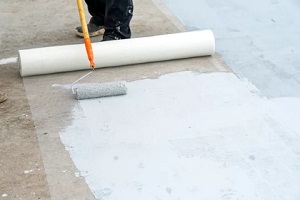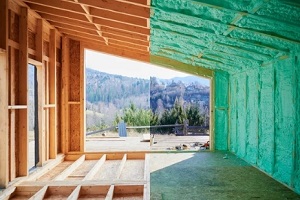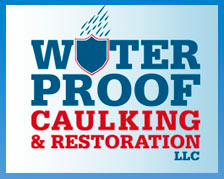 A commercial structure’s owner may invest in maintenance and services that boost how the building looks and operates. For instance, power washing the exterior can remove unsightly blemishes and make a good impression while improving the longevity of the building’s materials. However, one frequently forgotten option for extending the life of your commercial building is waterproofing.
A commercial structure’s owner may invest in maintenance and services that boost how the building looks and operates. For instance, power washing the exterior can remove unsightly blemishes and make a good impression while improving the longevity of the building’s materials. However, one frequently forgotten option for extending the life of your commercial building is waterproofing.
Many PA property owners do not give waterproofing a second thought because no one lives at their commercial facility, so what does it matter if the rooms are a little damp sometimes? Waterproofing is an important part of taking care of your commercial structure, but once you decide to tackle this project, you will still need to choose which type of waterproofing to invest in.
An expert can help you evaluate the unique needs and risks of your building to find the solution that best suits your structure, but it is smart to do some research beforehand as well.
Here is an overview of the many commercial waterproofing systems available for your Pennsylvania property and how they work.
Is Commercial Waterproofing Worth It?
Still on the fence about waterproofing your structure? In short, it’s worth it. Adding waterproofing keeps moisture out of your building, which reduces or eliminates the spread of mold. These spores can make your workers and visitors sick, and the moisture may rot away important wooden framing or rust metal.
Additionally, the masonry in your structure will begin to crack and fall away if it is exposed to moisture—a small crack now can grow into a completely collapsed area that requires expensive and time-consuming remediation.
PA commercial waterproofing also comes with advantages that do not involve water at all. When you add waterproof barriers to your building, you are contributing a layer of UV resistance, which helps your structure to last longer before its materials begin to degrade.
You can also save on energy bills, as waterproofing prevents water from wicking away heat and impacting the atmosphere inside your building.
Waterproofing Systems and Methods for PA Properties
Waterproofing can help any commercial building to save money and last longer, but the right method will depend on your specific structure and its needs. The most common types of waterproofing systems used in Pennsylvania are:
Membranes
One of the most effective options for PA commercial waterproofing is a membrane. These are typically made of PVC or other polymers, which are bonded directly to the material beneath using an adhesive or heat.
Once the membrane is applied, it integrates seamlessly with the building itself, creating a waterproof seal that has adjusted to the structure’s unique contours, gaps, and vulnerabilities.
This membrane is flexible, so as your building shifts and expands or contracts due to time and weather, the membrane will continue to hold fast without coming apart. The cost of a membrane is higher than other options due to the labor-intensive installation, but building owners who select membranes are investing in a long-term waterproofing strategy.
Cementitious Fillers
When it comes to budgetary concerns, few options are as flexible as cementitious fillers. This type of waterproofing applies a cement coating to at-risk areas. This coating hardens, forming a sort of plug that keeps water out of vulnerable gaps. Cementitious coatings are simple to apply and inexpensive, but they are rigid.
Over time—especially in a state like Pennsylvania, with hot summers and cold winters—the expansion and contraction of the building will begin to create hairline cracks because the coating cannot expand along with everything else. Thus, cementitious fillers are a good mid-term option while a company is preparing its budget for a longer-term solution.
Liquid Sprays and Paints
 Another option for PA commercial waterproofing is a liquid application. Polyurethane is one of the most common types of liquid waterproof solutions, and it is applied directly to the building material, where it seeps into cracks, uneven surfaces, and places that other choices like membranes cannot reach to provide a consistent, affecting coating. It is highly resistant to UV rays and remains flexible in all weather, so liquid waterproofing is a long-lasting option.
Another option for PA commercial waterproofing is a liquid application. Polyurethane is one of the most common types of liquid waterproof solutions, and it is applied directly to the building material, where it seeps into cracks, uneven surfaces, and places that other choices like membranes cannot reach to provide a consistent, affecting coating. It is highly resistant to UV rays and remains flexible in all weather, so liquid waterproofing is a long-lasting option.
One of the unique advantages of a liquid waterproofing solution is that it can be layered; if water is pooling on a roof, for instance, one side of the roof can have multiple layers of liquid waterproofing applied so that a slight grade is created, allowing the water to drain correctly off the flat surface.
Get Your Commercial Structure Waterproofed to Prevent Damage
PA commercial waterproofing is an often overlooked but highly worthwhile investment that improves the longevity of a building and keeps it safe from common moisture-related issues.
The experts at Waterproof Caulking & Restoration have years of experience helping commercial building owners in Pennsylvania to choose the right solution for their needs based on the unique factors influencing their building. Contact Waterproof Caulking & Restoration to learn more about the many types of waterproof coatings we can apply or to schedule a visit to evaluate your structure.
